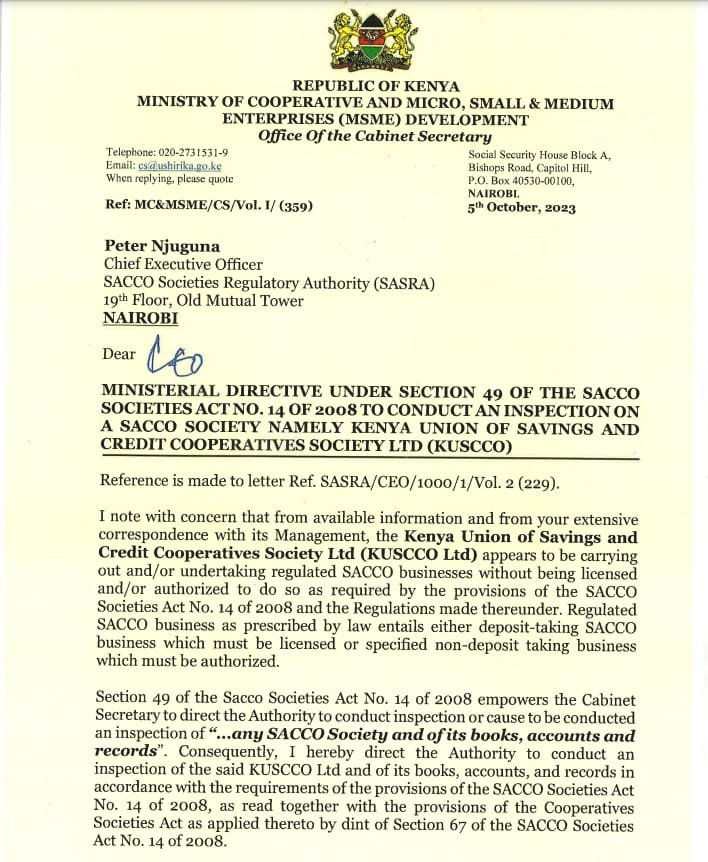
We have been monitoring the Watu Credit Kitale office, which is a replica of many others countrywide, on their exploitative nature of the poor and mostly semi-literate riders.
In this case, we zeroed in on a motorcycle that had an outstanding loan of about Sh20,000. That was for motorcycle KMGC133R.
On January 13, 2025 we asked the loanee to seek for clearance of his outstanding debt – which we were to pay under a separate arrangment.
Brokers
First, we realized, loanees can’t call the company directly. There are too many brokers hanging around Watu Credit who pose as its’ employees. They are not. They are the approved sales/credit agents.
Each motor-cycle loanee is assigned a specific individual to contact in case of challenges. These are the same agents who call to inform loanees of default and resultant consequent.
When the loanee called to say he had funds to clear the outstanding loan of Sh20,000, the agent demanded a clearance fee of Sh10,000.
ALSO READ: More Kenyans allege Watu Credit continues to rob them of their motorcycles
After negotiation, he settled for Sh7,000 as a total of Sh27,770 was made to paybill number 32638647. An assurance was made that all payments had been settled and that after two weeks, the logbook would be ready for collection.
No alert and or written confirmation was made to confirm the loan had been settled in full. Upon inquiry, the loanee was told ‘not to worry’ as all the payment had been cleared.
On Wednesday, February 12, when the former loanee visited the Watu Credit Kitale office, the man who served him initially was nowhere.
Those present confirmed the Sh27,770 payment and said he only needed to add Sh10,000 “processing fee”. Upon prompting, the now bewildered former loanee wondered why he was being asked for additional fees when he knew a logbook for a motorcycle would cost as low as Sh120,
Upon advice and speaking to COFEK officials, and threatened, the Watu agent who said he was called Paul Wamalwa (not likely to be his real name) decided to keep the former loanee for hours on end.
After lunch hour that again took long, the agents now sensing they could be arrested, warned the loanee not to involve the COFEK team on the search for his logbook.
Eventually
They told him to part with Sh3,000 (out of Sh10,000) which he did. They eventually gave him the original logbook (but not in his name). It belongs to Watu Nominees Company Limited with listed PIN as P051855985F.
They told him to go and that it would be transferred to his name. Whether that would happen without a further ‘processing fee’ is anyone’s guess.
Apparently, and contrary to Section 62 of the Consumers Protection Act 2012, Watu Credit still penalizes anyone settling their loans earlier.
Bottom line, Watu Credit run by Erick Massawe (country manager, Kenya) remains a rogue firm that is preying on the millions of unexposed, semi-literate and vulnerable bodaboda riders. The CEO is Andis Kaneps

This is what Cyprian Nyakundi, a leading blogger wrote on Watu Credit on December 18, 2024 on his X handle;
Inside Toxic Culture at Watu Credit Where Staff are Forced to Work Holidays and Weekends as CEO Kaneps Turns a Blind Eye
Watu Credit has earned a reputation for exploiting its employees and borrowers with a level of mastery that could only be described as ruthless.
The company’s predatory lending practices have long been under the microscope, but recent whistleblower accounts paint an even darker picture, revealing a toxic work environment where workers are treated as expendable, and the rules only seem to serve those at the top. Employees are being squeezed dry, working long hours on weekends and holidays without a penny in overtime pay, while management seems to enforce policies that benefit only themselves.
It’s a culture where favouritism runs rampant and the Head of Department is too busy watching from the sidelines to champion any real changes. The staff’s discontent has reached a boiling point and the company appears to be devouring its own from the inside out.
“Hi Cyprian, I need you to call out Watu Credit for providing a toxic working environment for their staff, especially the back office. The management keeps frustrating us day by day by coming up with rules that only benefit them and forcing them down on us even without consultation. With a basic salary of as low as 32k, you’re forced to work from Monday to Sundays and holidays, which were made a must. What is hurting most is the HOD does not even help to negotiate for our freedom and rights as it should. Right now, they are forcing us to work on the 25th, 26th, and on the 1st, and it’s only the Back Office Simu team. Nyakundi, we are not an essential service providing company, why don’t these people just let us have our Sundays and holidays as days off? Please hide ID.”
But it’s not just employees who are suffering. The company’s lending practices have been widely condemned for their predatory nature, especially towards low-income borrowers like Boda Boda operators. Charging astronomical interest rates, sometimes up to 103%, Watu Credit has been accused of trapping borrowers in a cycle of debt that often leaves them worse off than when they started.
With no clear regulations in place, Watu Credit continues to operate with impunity, causing untold harm to the very people it claims to serve. And while the company’s business practices might be up for debate, one thing is for certain: its approach to staff layoffs is nothing short of scandalous.
Employees are being subjected to unattainable performance targets, with redundancies often handed out based on favouritism rather than merit. The process seems more about getting rid of the “undesirable” workers than about following any legitimate process.
At the helm of this chaos is the company’s CEO, Andris Kaneps, a Latvian whose leadership seems to be as out of touch as the predatory practices his company continues to engage in. Under his watch, Watu Credit has become a breeding ground for exploitation, where workers are treated as disposable and borrowers are subjected to extortionate lending terms. His failure to address mounting complaints speaks volumes about his disregard for both the well-being of his employees and the financial stability of the communities his company claims to serve.
His apparent indifference to the suffering of those on the ground only adds fuel to the fire, with many questioning how much longer he will continue to profit from the exploitation of Kenya’s most vulnerable. It seems that for Kaneps, the rules of corporate responsibility are nothing more than an afterthought, as long as the bottom line remains intact. As more people come forward to expose the truth, one has to wonder how much longer Watu Credit can keep its toxic operation afloat.




